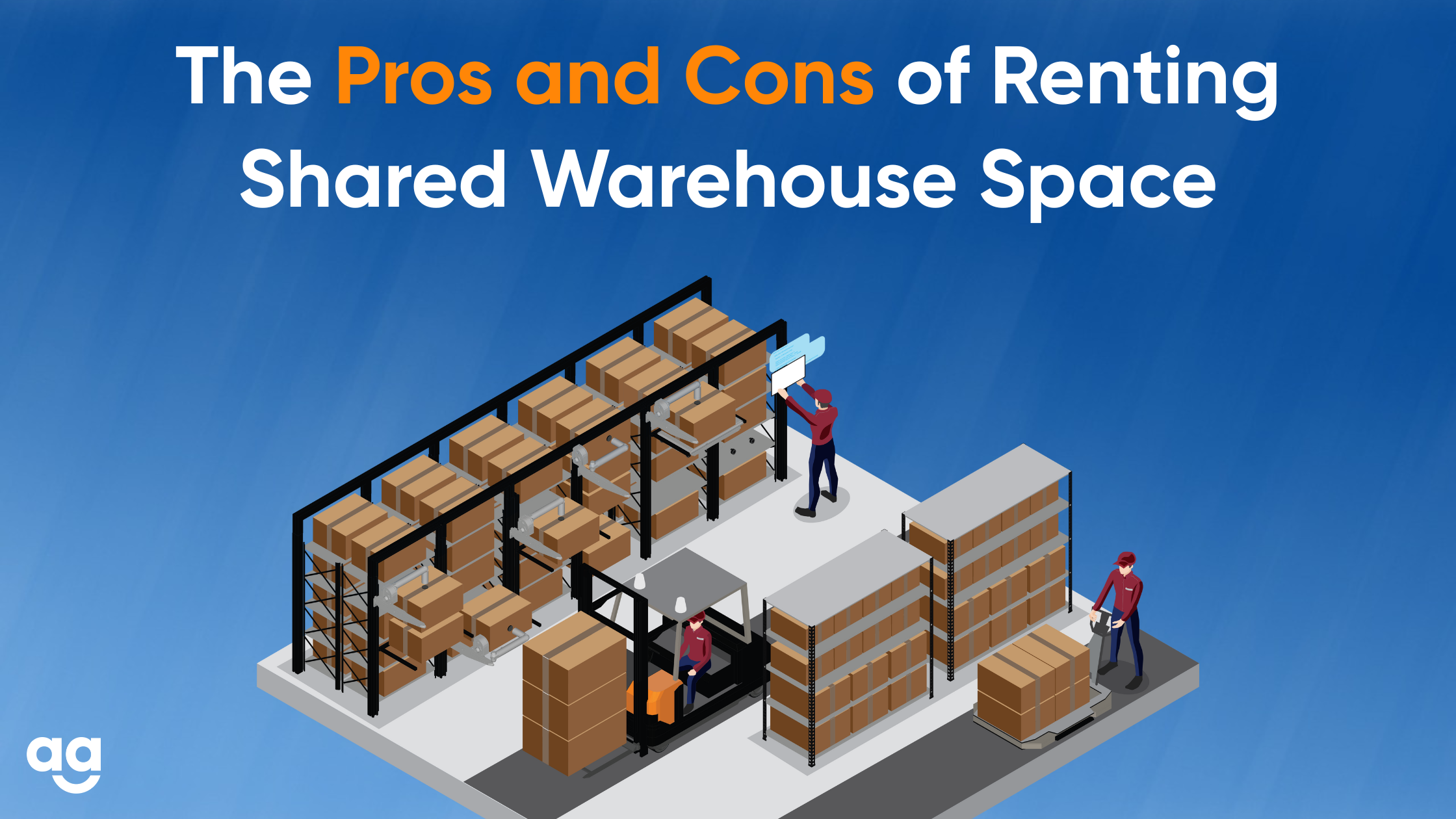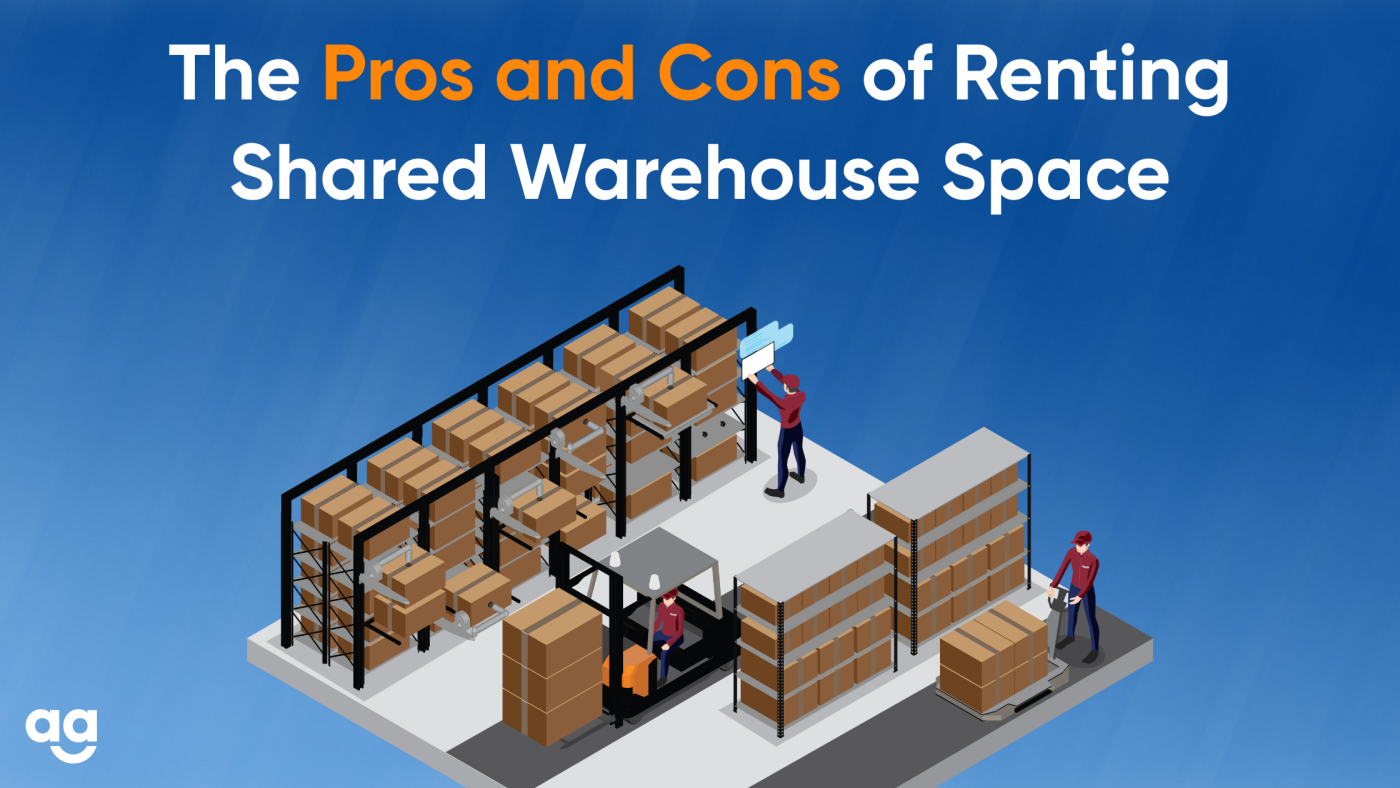Planning Pays Off: 5 Strategies to Get the Most Out of Your Delivery Speed Choice
August 14, 2025
5 min read
Is Shared Warehousing Right for You? Pros, Cons & Key Considerations
It was the middle of October, and Arjun’s tiny retail office in Mumbai was overflowing with festive inventory. Orders were coming in faster than his team could pack them, but boxes were piled high on every surface, leaving little room to move.
Leasing a private warehouse? Too expensive. Expanding the office? Not possible. That’s when Arjun discovered shared warehousing—a solution that promised just the flexibility he needed.
Arjun’s story isn’t unique. Across India’s growing retail hubs, small and medium-sized businesses are grappling with logistics challenges. Shared warehouse space is becoming a practical, scalable answer; allowing businesses to expand operations without bearing the full weight of traditional storage costs.
In this blog, we explore the real pros and cons of partnering with warehousing and logistics companies to rent shared warehouse space—and what you need to consider before diving in.

Why Shared Warehousing Is on the Rise
One of the major reasons shared warehousing is gaining popularity is due to the rising warehouse cost per square foot in urban and semi-urban regions.
|
Did you know? |
In this scenario, on-demand warehousing—the model of renting warehouse space as per short-term or fluctuating needs—is proving to be a boon. This model especially benefits businesses with seasonal cycles or promotional peaks, offering much-needed operational agility.
As digital commerce rises in Tier 2 and Tier 3 cities, the demand for flexible storage models has grown exponentially, pushing many businesses to opt for shared logistics facilities.
The Pros of Renting Shared Warehouse Space
1. Cost Efficiency
Shared warehousing reduces operational costs significantly. Businesses split expenses such as utilities, labor, and maintenance with others using the space. This makes it much more affordable compared to long-term leases or buying property.
2. Flexibility and Scalability
Shared facilities allow you to scale up or down based on demand. During peak seasons, you can request more space or services without changing locations. This flexibility also means you’re not locked into a rigid contract, which is ideal for startups and SMEs.
3. Access to Premium Infrastructure
By renting from a reputable warehouse logistics company, even small businesses gain access to features like climate control, security systems, and digital inventory management. These are typically unavailable or unaffordable in standalone leases.
4. Reduced Administrative Burden
Most warehousing and logistics companies offer value-added services like order fulfillment, returns processing, and last-mile delivery, reducing the logistical burden on your internal team. This allows you to focus more on sales, marketing, and customer experience.
5. Strategic Locations
Shared warehouses are often located close to major transit points, helping cut shipping times and reducing last-mile delivery costs. This can improve customer satisfaction and loyalty. Some facilities are even designed to serve specific industries, such as pharmaceuticals or perishables, adding further value.
The Cons of Shared Warehouse Space
1. Limited Customization
Since you’re sharing space, there are limitations on how much you can tailor the layout or storage configuration to your exact needs. Specialized equipment or layouts might not be allowed.
2. Potential Security Risks
Even with modern monitoring, sharing space with multiple vendors could increase the risk of misplaced or mishandled inventory. The chance of cross-contamination or loss is slightly higher compared to dedicated facilities.
3. Dependency on Provider
You rely heavily on a warehouse logistics company for operational efficiency. If their services falter, it impacts your entire supply chain. Service-level agreements (SLAs) are critical here.
4. Inconsistent Service Levels
You might experience inconsistencies in staff allocation or service quality during busy periods when warehouse resources are stretched across clients. This can disrupt your fulfillment timelines.
What to Consider Before Renting Shared Space
Before finalizing your warehouse details, ask:
- What’s included in the rental agreement?
- Is there flexibility during high-demand months?
- What technology is used for inventory management?
- How are disputes and damages handled?
- Is the warehouse location aligned with your delivery regions?
- Are there minimum volume commitments or penalties for unused space?
Doing a thorough assessment will help avoid surprises and ensure your operations run smoothly. Also, consider visiting the facility and speaking to current tenants to get real-world feedback.
Your Next Move in Warehouse Logistics
Shared warehousing is transforming how businesses approach storage, distribution, and expansion. By partnering with the right warehousing and logistics companies, businesses can reduce costs, improve efficiency, and scale rapidly without committing to fixed infrastructure.
However, the model isn’t one-size-fits-all. Understanding your needs, asking the right questions, and reviewing warehouse details thoroughly will help you make an informed choice.
Find flexible warehousing solutions designed for your scale with Shipyaari, your trusted partner in logistics.
Frequently Asked Questions
Shared warehousing is best for startups, SMEs, and businesses with seasonal or fluctuating demand. If you are considering something that is affordable and provides logistical support, you can always opt for this.
By sharing the same facility in terms of rent, electricity, manpower, security, etc, you can cut down on unnecessary costs.
Shared warehouses offer robust security systems, access control, and digital inventory tracking. So, no need to worry about security, just choose the best logistics partner like Shipyaari and stay in control.
Key considerations include location suitability, flexibility during peak demand, technology for inventory management, dispute resolution policies, and minimum volume commitments.
Suggested Reads
Hyperlocal Personalization: Tailoring Experiences for Local Customers
Introduction The eCommerce industry in India has witnessed a rapid growth of hyperlocal services in
Continue ReadingDec



















 Shipping
Shipping







